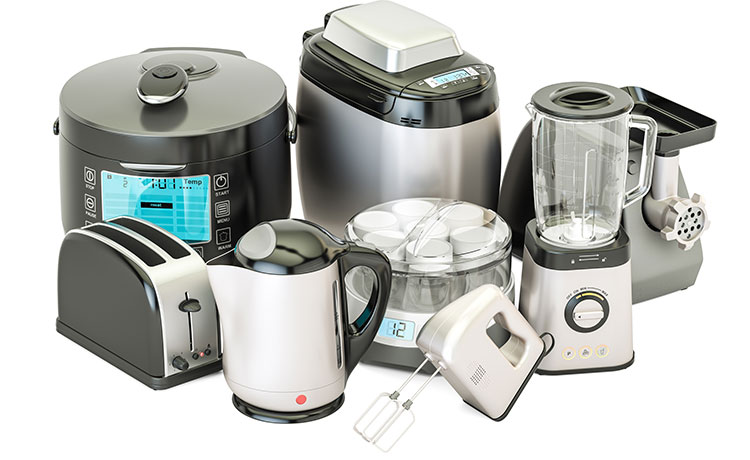Just before Christmas, Defra released their white paper - Our Waste, Our Resources: A Strategy for England.
The immediate priority is clearly packaging, with “plastic” mentioned 260 times compared to “WEEE”, which was cited just nine times. Although only one page of the 146-page document is dedicated to the electronics industry, it does provide significant information on what can be expected over the next few years.
Much of the recent discussion on WEEE has focused on the minutia of the regulatory framework that makes an evidence balancing system and compliance fee necessary. However, Defra’s white paper points to a holistic review of how well the current WEEE legislation is delivering on the stated goals.
The last major change to the WEEE regulations came in 2013 when the previous market-share evidence system was changed to allow Defra to set annual targets, which have proved very tricky to forecast. Defra have already begun work on the post-implementation review, having asked for feedback from stakeholders in 2018.
Influencing product design
The government is now presented with a unique opportunity to compare the first version of the WEEE regulations (from 2007) with the current version, in order to assess how to move forward with a new revised version of the WEEE regulations. One thing that is clear from the white paper is that ideas are needed on how to “encourage better designed products”. Defra will need to be particularly careful in this area as the potential to stifle creativity and reduce product innovation is high.
However, inbuilt obsolescence remains a concern to be addressed and it seems logical that producers should be rewarded for product longevity and repairability. Over the course of 2018, the industry and Defra have found it extremely difficult to conceive of a simple way to modulate a producer’s fee based on packaging design. When it comes to electrical equipment, fee modulation will be tremendously more complicated as these products are inordinately more complex in function and material than the average item of packaging.
The government have indicated they will follow the EU’s lead when it comes to ecodesign and ecolabels. However, as the EU are finding, putting together sensible future-proofed ecodesign legislation is very tricky, given that the nature of products yet to be designed and manufactured are inherently unknown.
The EU’s energy efficiency labelling scheme is one ecolabel that has largely been successful in improving the environmental performance of products. It seems sensible for the government to explore the potential for introducing similar labelling schemes as a means of helping consumers and giving direction to manufacturers. It will be an area to watch over the coming years.
Tackling problematic WEEE
Small electrical items are specifically mentioned in the strategy as problematic, as they are “easily discarded as residual black-bin-bag waste”. Collection schemes like the one recently introduced by Dixons Carphone are helpful in addressing the issue.

However, it may not be enough to stave off interest in this area as the strategy states that Defra will “review the role of retailers, in particular the Distributor Take-back Scheme as a mechanism designed to fulfil their take-back obligations”. It is likely that retailers will be expected to do more than re-direct customers to household waste recycling facilities in future.
The WEEE regulations in the UK are far from perfect. The government is finding it difficult to set sensible annual targets and there seems to be a lack of incentive for WEEE recyclers to setup or expand operations. The repair and reuse of items is also not incentivised by the legislation, which needs to change. Now the government have stated their intention to review this area, it is up to the industry to show willingness to change.
If you would like to discuss how future WEEE policy and legislation could impact your business, please contact our team.

Robbie Staniforth
Innovation and Policy Director
Robbie is innovation and policy director at Ecosurety. Having spent years building an intimate understanding of the industry’s policies and politics, he uses this knowledge to help shape new legislation and oversees Ecosurety’s growing portfolio of cross-industry innovation projects including Podback and the Flexible Plastic Fund. He has worked closely with Defra during the most recent packaging consultations, outlining the impacts and required transitional arrangements of the UK’s new EPR system and is a member of the government’s Advisory Committee on Packaging (ACP). He is also a spokesperson for the company and regularly uses his influence to communicate the importance of environmental responsibility to external stakeholders.

Latest News

Q2 2024 recycling data shows strong performance in H1
By Sam Marshall 24 Jul 2024
Ecosurety continue to step up for refill and reuse
By Victoria Baker 24 Jun 2024
Ecosurety renews B Corp™ certification with flying colours
By Louise Shellard 11 Jun 2024
Ecosurety sponsor the 2024 Carbon Literate Organisation Awards
By Louise Shellard 07 Jun 2024
